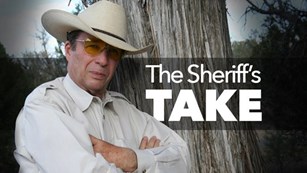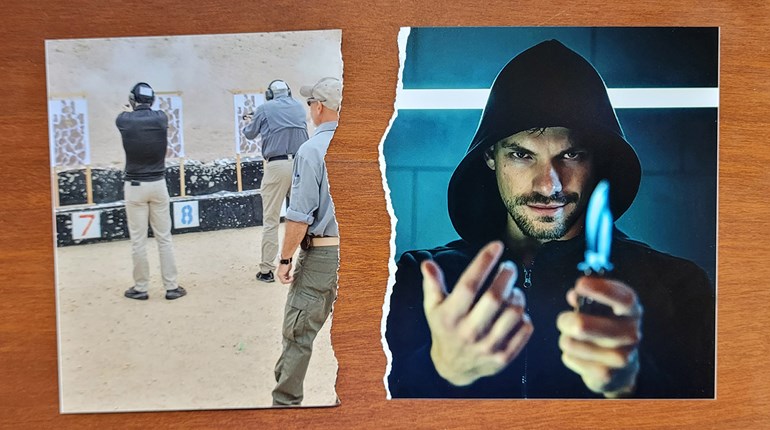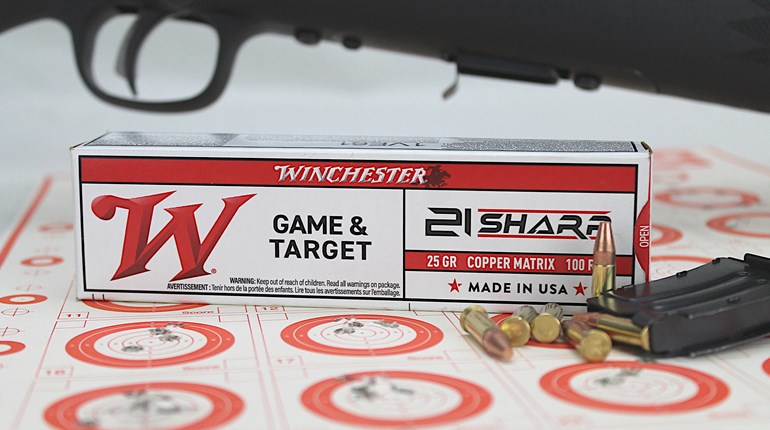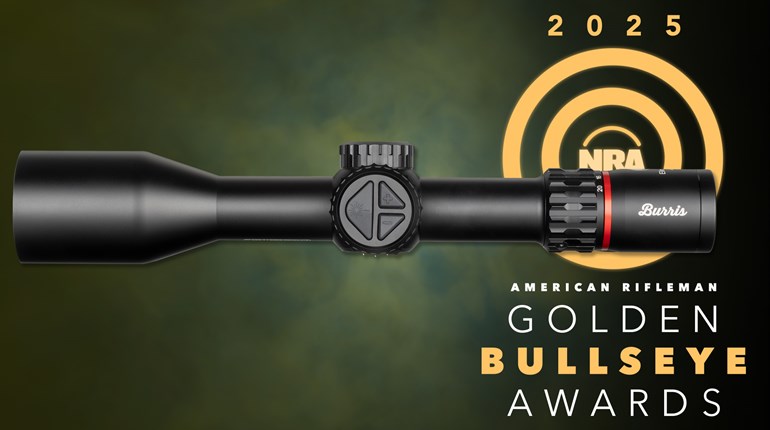
Fear is an emotion that, to one extent or another, we live with our entire lives. And fear, to a certain extent, can be a good thing, keeping us from doing ill-advised things that might get us hurt or killed. However, life is not fair, and we sometimes have to function in spite of our fears in order to protect ourselves or our family. When it comes to one’s defense, ignoring one’s fears can be a serious mistake.
I once went to back up a deputy on a shots-fired call. As I cautiously approached the house, he came running out, said, “Look out, she’s got a gun!” and promptly left the scene—leaving me to solve the problem. Clearly, this soon-to-be-unemployed individual was controlled by his fear to the extent that he could not function reliably or professionally.
Another indication of fear that we encounter all too often is the braggadocious types we run into when personal defense is being discussed. You know the type: “I ain’t scared of nothing! And if that blankety-blank tries anything, I’ll blow his head off!” That loud, tough-talking approach is nearly always an attempt to hide fear.
Probably the best lesson that I got concerning controlling fear was as a child growing up in snake country. My father insisted that we study snakes, read about them and learn to identify the types common to our area. Most importantly, he wanted us to be able to recognize those species that were venomous. But, we also studied their habits, food sources and places of concealment. With this study came understanding and the realization that a good deal of our fears were overblown.
I still live in snake country and, while I’ve come close a few times, fortunately I have never been bitten by a venomous snake. Nor am I particularly afraid of snakes—unless, of course, one surprises me and then I will jump just like anyone else. I would suggest that we can successfully deal with two-legged snakes in the same manner.
In personal defense, we can learn to reduce fear through research. Studying accounts of criminal activity in newspapers, NRA’s “Armed Citizen” column and other media sources can give us an idea of the kinds of violent crime we might face in our area. We can get ideas from learning how other citizens effectively fought off a criminal attack. In addition, there are any number of good books available that discuss the criminal mind that helps us understand what we might be up against.
Too often, we just think of the defensive-firearms schools as places to help us hone our shooting skills. Almost equally important is that they offer an opportunity to be around others who are just as concerned with improving their knowledge, hardening themselves as a target and controlling their fear. For some it may be the first time that they have ever talked face-to-face with a person who has successfully survived a deadly criminal encounter.
Another way to control or diminish fear is to talk about it. This can be especially successful in defensive-firearms classes or discussion groups. Instead of saying, “What scares me ...”, we might use, “How would you handle …?” but the effect is the same. Sharing such concerns, ideas and techniques can help make us a harder target.
Improving our gun-handling and shooting skills can go a long way toward controlling our fears. Regular practice makes our presentations smoother, our shots quicker and our groups tighter—all of which builds confidence, which tends to push fear to the side. Dumping six shots into one ragged hole at 15 yards may be more accuracy than is needed to win a gunfight, but what it can do for your personal confidence is off the charts.
One of the techniques used by professional athletes is to imagine success. Now, don’t get that confused with daydreaming, which is where you are the mental hero of your mind movie. In imagining success, you create a realistic scenario and apply your training, practice and research to solve the problem in a realistic manner. Study and imagine yourself through some of the worst-case scenarios.
The mistake with fear is not recognizing it and finding ways to deal with it. I accept the fact that life isn’t fair and I can’t keep a criminal from attacking me. I fear being hurt or killed. But, I can study, I can train and I can practice. In short, I can push fear aside and focus on making this the worst mistake that crook has ever made. I can give my attacker some fears to be concerned about.
When we dedicate ourselves to improving our personal defense through physical and mental abilities, we will vastly increase our confidence level. As our confidence increases, our fear diminishes. We are no longer actually surprised by what might happen. Instead, we expect it and have a plan for dealing with it.



































